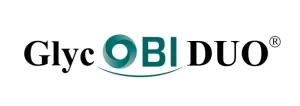
What We Do
Technology
Obrion™ ADC Technology Platform
Obrion™ is OBI’s next-generation drug conjugation technology platform, designed to enable diverse modalities of antibody-drug conjugates (ADCs) with enhanced precision, stability, and therapeutic potential.
Powered by a suite of proprietary conjugation and linker technologies — GlycOBI® (driven by EndoSymeOBI® enzymatic glycan engineering), HYPrOBI®, ThiOBI®, and GlycOBI DUO® — Obrion™ provides a versatile platform for site-specific conjugation, dual-payload integration, and precise control of drug-to-antibody ratios (DARs).
This integrated capability supports:
• Conventional ADCs with enhanced stability and efficacy
• Dual-payload ADCs for synergistic or multi-targeted MOAs
• Bispecific ADCs for complex targeting strategies
• Bispecific Dual-Payload ADCs enabling multi-target and multi-mechanism therapeutic approaches
• Emerging payload classes such as degraders, immune modulators, and nucleic acid therapeutics
By combining precise conjugation chemistry with flexible payload and linker design, Obrion™ accelerates the development of innovative, clinically translatable ADCs to address unmet medical needs across oncology and beyond.
Platform
Technology Area
Potential Application
Platform
GlycOBI®
Technology Area:
Glycan site-specific conjugation technology
Potential Application:
Antibody Drug Conjugates (ADC), Degrader-Antibody Conjugate (DAC), etc
Platform
GlycOBI DUO®
Technology Area:
Site-specific Dual payload conjugation technology
Potential Application:
Antibody Drug Conjugates (ADC), Degrader-Antibody Conjugate (DAC), etc
Platform
ThiOBI®
Technology Area:
Next generation cysteine (Cys)-based conjugation technology
Potential Application:
Any kind of drug conjugates
Platform
EndoSymeOBI®
Technology Area:
Enzymatic technology
Potential Application:
Biologics glycan engineering
Platform
HYPrOBI®
Technology Area:
Linker technology
Potential Application:
Any kind of drug conjugates
Partner with Us
OBI operates with an excellent management team and efficient management model to create an international Taiwan brand, and to base in Taiwan and expand the horizon worldwide.




